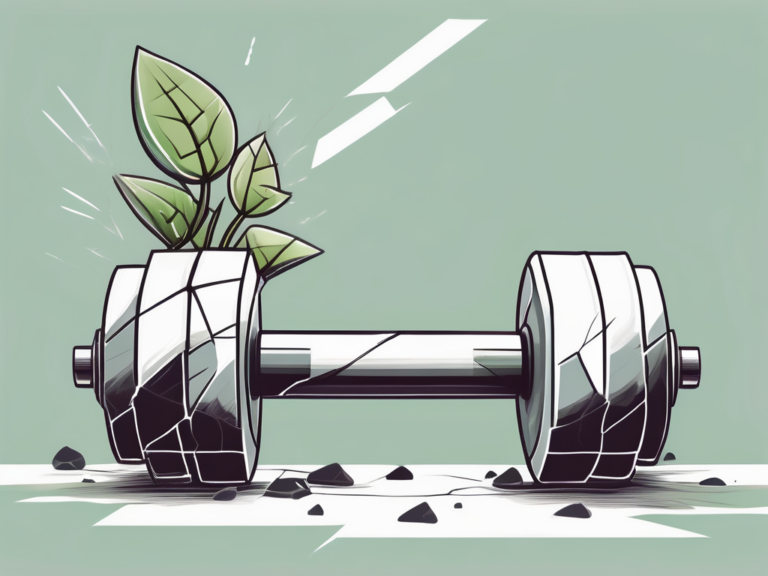Unwind and Relax with These 10 Soothing Techniques
Are you feeling stressed out and overwhelmed? In today’s fast-paced world, it’s essential to take the time to unwind and relax. Luckily, there are plenty of soothing techniques that can help you find tranquility and restore your inner calm. In this article, we’ll explore the importance of relaxation and delve into ten different techniques that can help you achieve a state of blissful serenity.
Understanding the Importance of Relaxation
Before we dive into the specifics of soothing techniques, it’s crucial to understand why relaxation is so vital for our well-being. Stress is an unavoidable part of life, and if left unchecked, it can have serious consequences for both our physical and mental health. Chronic stress can lead to a weakened immune system, digestive problems, anxiety, depression, and even cardiovascular issues. That’s why finding ways to relax and unwind is more than just a luxury—it’s a necessity.
The Science Behind Stress and Relaxation
To comprehensively address the importance of relaxation, it helps to understand the science behind stress. When we experience stress, our sympathetic nervous system goes into overdrive, triggering the body’s “fight-or-flight” response. This response includes increased heart rate, elevated blood pressure, and a surge of stress hormones like cortisol.
On the other hand, relaxation activates the parasympathetic nervous system—the body’s “rest-and-digest” response, which counters the effects of stress. This response is mediated by a key nerve called the vagus nerve, which plays a crucial role in promoting relaxation and reducing stress levels.
Why We Need to Prioritize Relaxation
In our fast-paced society, relaxation often takes a backseat to productivity and achievement. However, neglecting relaxation can have serious consequences for our overall well-being. By prioritizing relaxation, we give ourselves the opportunity to recharge, improve our mental clarity, boost our creativity, and promote a sense of inner peace and happiness.
Furthermore, relaxation not only benefits our mental and emotional health but also has a profound impact on our physical well-being. When we relax, our muscles loosen up, allowing for better blood circulation and reducing the risk of muscle tension and pain. Additionally, relaxation has been shown to improve sleep quality, which is essential for our body’s rejuvenation and repair processes.
Moreover, engaging in relaxation activities can have positive effects on our relationships and social connections. When we take the time to relax, we become more present and attentive to those around us. This can strengthen our bonds with loved ones and foster a deeper sense of connection and intimacy.
The Art of Mindful Breathing
One of the simplest and most effective techniques for relaxation is mindful breathing. By focusing on our breath, we can bring our attention to the present moment and cultivate a sense of calm and tranquility.
Mindful breathing is a practice rooted in ancient traditions such as Buddhism and yoga. It is a powerful tool that can help us connect with our inner selves and find peace amidst the chaos of daily life. The rhythmic flow of the breath serves as an anchor, grounding us in the here and now.
Steps to Master Mindful Breathing
To practice mindful breathing, find a quiet and comfortable space where you won’t be disturbed. Sit in a relaxed position, close your eyes, and bring your attention to your breath. Take slow, deep breaths in through your nose, allowing your belly to expand. Then, exhale slowly through your mouth, releasing any tension or stress with each breath. Repeat this process for several minutes, allowing yourself to become fully present in the moment.
As you continue to practice mindful breathing, you may notice subtle shifts in your awareness and state of mind. Thoughts may come and go, but by returning your focus to the breath, you can cultivate a sense of inner peace and clarity. The practice of mindful breathing is not about suppressing thoughts, but rather observing them without judgment and letting them pass.
Benefits of Mindful Breathing
Mindful breathing has numerous benefits for both our physical and mental well-being. By focusing on our breath, we can reduce anxiety, lower blood pressure, improve concentration, and enhance our overall sense of relaxation. Incorporating mindful breathing into our daily routine can bring us greater peace and clarity in all areas of our lives.
Furthermore, mindful breathing can have a profound impact on our emotional regulation. By tuning into our breath, we can create a space between stimulus and response, allowing us to choose how we react to challenging situations. This increased self-awareness can lead to healthier relationships, improved communication, and a greater sense of emotional resilience.
The Power of Meditation
In addition to mindful breathing, meditation is another powerful technique for deep relaxation and inner peace. Meditation involves training our minds to achieve a state of focused attention and awareness.
Meditation has been practiced for centuries across various cultures and traditions as a way to connect with the inner self and achieve a sense of tranquility. It is a practice that encourages individuals to slow down, be present in the moment, and explore the depths of their consciousness. Through meditation, people can tap into their inner resources for healing, self-discovery, and personal growth.
Different Types of Meditation
There are many different types of meditation practices, and each offers unique benefits. Mindfulness meditation involves bringing our attention to the present moment and observing our thoughts and sensations without judgment. Loving-kindness meditation focuses on cultivating feelings of compassion and kindness, both towards ourselves and others. Guided visualization meditation utilizes visualization techniques to create a sense of inner peace and relaxation.
Mantra meditation involves repeating a specific word or phrase to focus the mind and induce a state of calm. Transcendental meditation, popularized by Maharishi Mahesh Yogi, aims to help individuals reach a state of pure awareness and transcendental consciousness. Movement-based meditations like Tai Chi and Qigong combine physical movement with mindfulness to promote relaxation and balance.
How Meditation Promotes Relaxation
Meditation promotes relaxation by helping us let go of stress and find inner calm. Regular meditation practice can reduce anxiety, improve sleep quality, increase self-awareness, and enhance our ability to handle stress. By incorporating meditation into our daily routine, we can cultivate a greater sense of serenity and well-being.
Research has shown that meditation can have a positive impact on both the mind and body. It can lower blood pressure, reduce symptoms of depression, and boost immune function. The practice of meditation is not about eliminating thoughts but rather observing them without attachment, allowing for a sense of peace and clarity to emerge.
The Role of Physical Activity in Relaxation
When it comes to relaxation, physical activity might not be the first thing that comes to mind. However, engaging in regular exercise can have profound effects on our ability to unwind and destress.
Physical activity is not just beneficial for our physical health but also plays a crucial role in our mental well-being. The connection between the body and mind is undeniable, and incorporating exercise into our routine can significantly impact how we manage stress and find relaxation.
Yoga for Relaxation
Yoga is a popular form of exercise that combines physical postures, breathing techniques, and meditation. It is known for its ability to promote relaxation, reduce stress, and improve flexibility and strength. By practicing yoga regularly, we can enhance our mind-body connection and bring about a state of deep relaxation.
Yoga is not just about physical movements; it also focuses on mindfulness and being present in the moment. This meditative aspect of yoga can help calm the mind, reduce racing thoughts, and promote a sense of inner peace. The combination of physical exertion and mental relaxation makes yoga a powerful tool for achieving a state of overall well-being.
The Benefits of Regular Exercise
Engaging in any form of physical activity, whether it’s running, swimming, dancing, or hiking, releases endorphins—the body’s natural feel-good chemicals. Regular exercise not only improves our physical fitness but also boosts our mood, reduces anxiety and depression, and helps us better manage stress. By making exercise a priority, we can reap the many rewards for our body and mind.
Exercise is not just a way to stay in shape; it is a holistic approach to self-care. The sense of accomplishment after a good workout, the increased energy levels, and the improved sleep quality are all additional benefits of regular physical activity. By taking care of our bodies through exercise, we are also nurturing our mental health and overall well-being.
The Healing Power of Nature
The natural world has an incredible ability to restore our sense of peace and well-being. Spending time outdoors and immersing ourselves in nature can be a powerful form of relaxation.
When we step outside and breathe in the fresh air, we are not just taking in oxygen; we are also absorbing the healing energy of the natural world. The sights, sounds, and smells of nature have a calming effect on our minds and bodies, helping to reduce stress and promote overall well-being. From the gentle rustling of leaves in the wind to the vibrant colors of a blooming flower, nature has a way of captivating our senses and soothing our souls.
The Concept of Forest Bathing
Forest bathing, or shinrin-yoku, is a practice that originated in Japan and involves immersing oneself in a natural forest environment. This practice has been scientifically proven to reduce stress, lower blood pressure, boost immune function, and improve concentration and creativity. By connecting with nature and the earth, we can tap into its innate healing power and find deep relaxation.
As we wander through the forest, our senses come alive as we take in the sights, sounds, and scents of the natural world around us. The dappled sunlight filtering through the leaves, the gentle babbling of a nearby stream, and the earthy aroma of the forest floor all work together to create a sense of peace and harmony within us. Forest bathing is not just about being in nature; it is about fully immersing ourselves in the experience and allowing its healing energy to wash over us.
Benefits of Spending Time Outdoors
Whether it’s taking a walk in the park, going for a hike in the mountains, or simply sitting by the ocean, spending time outdoors has numerous benefits for our well-being. Exposure to nature has been shown to reduce anxiety and depression, improve mood, increase energy levels, and promote a sense of tranquility and inner peace.
When we engage with the natural world, we are not just benefiting our physical health; we are also nurturing our mental and emotional well-being. The simple act of being outdoors can help us feel more grounded, connected, and at peace with ourselves and the world around us. Nature has a way of reminding us of the beauty and wonder that exist beyond the confines of our daily lives, offering us a sense of perspective and rejuvenation that is truly invaluable.
The Impact of Aromatherapy on Relaxation
Aromatherapy, the use of essential oils for therapeutic purposes, is another effective technique for relaxation and stress relief.
Essential Oils for Relaxation
There are many essential oils that can promote relaxation and calmness. Lavender oil, known for its soothing properties, can help to reduce anxiety and improve sleep quality. Chamomile oil is also known for its calming effects. Other oils such as bergamot, ylang-ylang, and frankincense can also induce a sense of tranquility and relaxation when used in aromatherapy.
How Aromatherapy Works
Aromatherapy works by stimulating our olfactory system—the sense of smell— which directly impacts our brain and emotions. When we inhale essential oils, the molecules interact with receptors in our nasal cavity, triggering a response in the limbic system—the area of the brain responsible for emotions and memory. This response can bring about feelings of relaxation, reduce stress, and enhance our overall sense of well-being.
The Importance of a Balanced Diet
While diet may not be the first thing we think of when it comes to relaxation, what we eat can have a significant impact on our stress levels and overall well-being.
Foods That Promote Relaxation
Incorporating certain foods into our diet can promote relaxation and reduce stress. Foods rich in magnesium, such as spinach, almonds, and dark chocolate, can help relax our muscles and calm the nervous system. Omega-3 fatty acids found in fatty fish like salmon and mackerel can reduce inflammation and lower stress hormones. Including complex carbohydrates like whole grains and legumes can also boost serotonin levels, which improves mood and promotes a sense of well-being.
The Connection Between Diet and Stress
When we consume an unhealthy diet high in processed foods, sugar, and caffeine, it can exacerbate stress and anxiety. These foods can lead to blood sugar imbalances, inflammation, and hormonal disruptions, all of which contribute to heightened stress levels. By adopting a balanced diet rich in whole foods and incorporating relaxation-promoting nutrients, we can support our body’s ability to manage stress and promote overall well-being.
The Influence of Music on Relaxation
Music has a profound effect on our emotions and can be a powerful tool for relaxation and stress reduction.
The Science Behind Music and Relaxation
Listening to calming music can elicit a relaxation response in our bodies. Slow, soothing melodies can slow down our heart rate, lower blood pressure, and reduce stress hormones like cortisol. Music can also distract our minds from worries and negative thoughts, allowing us to enter a state of deep relaxation.
Types of Music for Relaxation
While individual preferences may vary, certain types of music are known for their relaxing qualities. Classical music, especially compositions by composers like Mozart and Beethoven, is often used for relaxation purposes. Nature sounds, such as gentle rain or ocean waves, can also create a tranquil atmosphere. Experiment with different genres and find what resonates with you to create your own personalized relaxation playlist.
The Benefits of a Good Night’s Sleep
A good night’s sleep is essential for our overall well-being. It gives our bodies the opportunity to rest, repair, and rejuvenate, leading to improved physical and mental health.
Sleep Hygiene Tips for Better Relaxation
Establishing healthy sleep habits can significantly impact our ability to relax and manage stress. Maintaining a consistent sleep schedule, creating a calming bedtime routine, and ensuring a comfortable sleep environment are all important factors in promoting deep and restful sleep. Avoiding caffeine, electronics, and stimulating activities before bed can also help prepare our minds and bodies for sleep.
How Sleep Affects Stress Levels
When we don’t get enough sleep, our stress levels can skyrocket. Sleep deprivation can impair our cognitive function, decrease our ability to cope with stress, and negatively impact our mood and overall well-being. On the other hand, consistently getting enough quality sleep promotes relaxation, increases our resilience to stress, and allows us to wake up refreshed and ready to tackle the day.
The Role of Positive Thinking in Relaxation
Our mindset and thought patterns have a significant influence on our ability to relax and find peace within ourselves.
Techniques to Foster Positive Thinking
Cultivating a positive mindset takes practice and effort. However, it can have a profound impact on our ability to relax and manage stress. Regularly practicing gratitude, challenging negative thoughts, and engaging in positive self-talk can help shift our perspective and promote a more optimistic and relaxed state of mind.
The Connection Between Mindset and Stress Levels
Our thoughts and beliefs directly impact our physiology. Negative thoughts and a pessimistic mindset can activate our stress response and increase stress hormone production. On the other hand, positive thinking can activate the relaxation response, reduce stress levels, and promote a sense of well-being. By harnessing the power of our thoughts, we can create a more peaceful and tranquil internal landscape.
When it comes to relaxation, there is no one-size-fits-all approach. Experiment with these soothing techniques and find what works best for you. Remember that relaxation is a practice, and it requires consistent effort and commitment. By prioritizing relaxation in your life, you can cultivate a greater sense of peace, joy, and well-being. So, take a deep breath, unwind, and embrace the art of relaxation. Your mind, body, and spirit will thank you!






